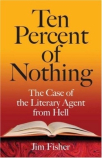
Gardens grow, as do people.
Sarah King is a young Amish woman who is happiest when tending her plants, but one day her sheltered and routine life changes. I’ve always lived in apartments so I tend to vicariously enjoy other people’s gardens, and I requested Kelly Long’s novel Sarah's Garden
First Sarah has to supervise her family’s roadside stand, bringing her into contact with both an enemy of her family and with foreigners who ask odd questions, such as whether they can buy her dress (!). Then a young veterinarian, Grant Williams, opens a rural practice in her community. He falls in love with Sarah and she begins to care for him.
But while Grant is a good man and as devout as she is, he’s not Amish. Marrying him would mean separation from her family and society. Finally Sarah – despite not being much of a quilter – has to make a quilt for her sister’s first child. She learns to grow, to do what seems too difficult at first, and this stands her in good stead for later events.
This is a sweet and slow-moving romance, with as much emphasis on the daily life of the Amish as on Sarah’s developing relationship with Grant. If you enjoy gardening, you’ll love the descriptions of plants. I had no idea there were so many varieties of tomato – and in a multitude of different colors and shapes (like teardrops).
There were also enough descriptions of food – apple butter and potato cakes and peanut brittle – to make me hungry. The resolution of the plot was less satisfying. Sarah’s father makes it clear that in the past, when outsiders have converted to the Amish ways to marry one of them, it hasn’t ended happily, so it seemed strange that he would give his consent after Grant’s conversion.
It would also have been more realistic to show Grant’s struggle to do without the conveniences he’s used to, like a telephone, an Internet connection and a car. So that part of the story didn’t ring quite true. But if you like a happy rural atmosphere reminiscent of the Little House books, with plenty of cooking, gardening, quilting and even poetry in a community very different from most modern societies, this is a pleasant read.
Just one thing puzzled me. Is it normal among the Amish to have one’s cap strings hanging artistically loose like that?










